Tuesday morning, Rep. Elaine Price introduced a resolution that would ask Idaho voters if they want to repeal the so-called Blaine Amendment. Article IX, Section 5 of the Idaho Constitution states:
SECTARIAN APPROPRIATIONS PROHIBITED. Neither the legislature nor any county, city, town, township, school district, or other public corporation, shall ever make any appropriation, or pay from any public fund or moneys whatever, anything in aid of any church or sectarian or religious society, or for any sectarian or religious purpose, or to help support or sustain any school, academy, seminary, college, university or other literary or scientific institution, controlled by any church, sectarian or religious denomination whatsoever; nor shall any grant or donation of land, money or other personal property ever be made by the state, or any such public corporation, to any church or for any sectarian or religious purpose; provided, however, that a health facilities authority, as specifically authorized and empowered by law, may finance or refinance any private, not for profit, health facilities owned or operated by any church or sectarian religious society, through loans, leases, or other transactions.
This section is part of the original constitution that was adopted prior to statehood.
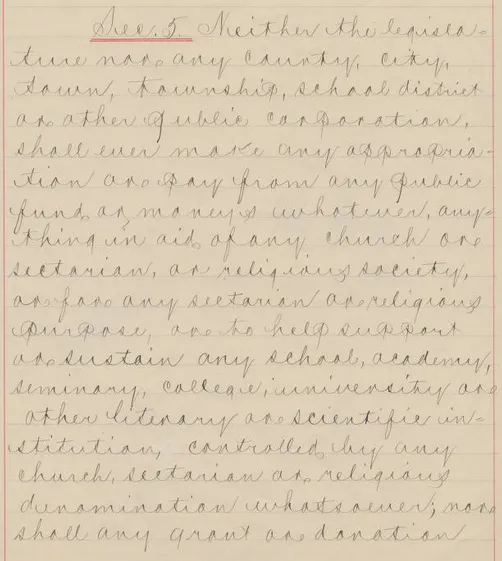
In the late 19th century, Catholics created parochial schools to combat what they saw as Protestant dominance of the burgeoning public school system. Congressman James Blaine of Maine believed that the 1st amendment prohibition on establishing a national church extended to preventing any public money from going toward parochial schools. His attempt to get this belief codified in the US Constitution failed, but he succeeded in passing a law requiring new states to have so-called Blaine Amendments in their own constitutions.
In 1971, the Idaho Supreme Court ruled in Epeldi v. Engelking that the state was prohibited from transporting students to and from parochial schools using public school buses.
However, in 2020 the US Supreme Court ruled in Espinoza v. Montana Dept. of Revenuethat if a state allows any public money to go to private institutions, they cannot discriminate against religious institutions. That means that if Idaho were to adopt some form of money following the student, whether a voucher, education savings account, or even a tax credit, it cannot prohibit families from taking that money to a religious school.
The Institute for Justice has a page devoted to Idaho that explains the status of anti-sectarian laws like the Blaine Amendment in the wake of Esponiza and other Supreme Court decisions:
After Espinoza, however, the state can no longer rely on its Blaine Amendment to prohibit any religiously neutral and generally available educational choice program. Idaho’s Blaine Amendment discriminates against religious educational options in the same manner as the Montana Blaine Amendment that was at issue in Espinoza. It thus cannot be invoked to prohibit religious educational options in a generally available choice program. As such, policymakers are now free to adopt either a publicly funded or tax-credit incentivized educational choice program.
Rep. Price’s introduction of House Joint Resolution 1 in committee Tuesday morning brought attacks from two sides. Public education boosters were very concerned that removing the Blaine Amendment would lead to expanded school choice options that would take funding away from public schools, while other testifiers were outraged at the very thought of tax dollars going toward Christian institutions.
The second group repeated the phrase “separation of church and state” like a mantra, despite it not being found in the Bill of Rights. (It comes from a letter by Thomas Jefferson.) It betrayed their ignorance, both regarding the context of the 1st Amendment, as well as the state of our culture today.
There is a Church of England. Most people know that, but for our purposes it needs reminding. People in medieval Europe had several levels of authority above them, and when it came to spiritual matters, the Pope in Rome had the final say, not the king or emperor. When England embraced the Protestant Reformation, they did not adopt a bottom-up Presbyterian style of ecclesiastical organization, rather they simply put the king in place of the pope as the final arbiter of spiritual issues.
That meant that the temporal government of England was also in charge of spiritual affairs. The line between taxes and tithes was nonexistent. It was out of this situation that our Founding Fathers decided to do something different in America. Rather than establishing a national church, they left it up to states and communities to decide their own religious character.
For most of our history, America had a Protestant character. Contrary to those on the left who warn of creeping Christian nationalism, America really was a Christian nation from the start. Laws were born out of Christian precepts, and Christian ideals of morality were often enforced within communities. The Blaine Amendment did not come from atheists or agnostics, but from Protestants concerned that Catholics were growing too influential within our country.
Fast forward to today and militant anti-Christians interpret the 1st Amendment that to mean that religion must be locked away behind church doors, completely out of public view.
Former state senator and state superintendent candidate Branden Durst wrote an op-ed last week about the implications for the proposed charter school rewrite bill with regards to the Blaine Amendment:
Contrary to popular belief, the Blaine Amendment and the seal preventing public funds from reaching sectarian organizations in Idaho is already broken, despite persistent claims to the contrary, particularly on the political left.
Beyond the Supreme Court’s rulings, the seal is also already broken because Idaho already allows public funds to be diverted to private institutions, albeit on a small scale.
On a broader scale, however, public funds are distributed to private institutions every day. Contractors who build the schools, wholesalers that supply pencils and paper, tech companies that sell computers, and even the teachers who take home paychecks are all private entities that may or may not be religious. The line between public and private is much more vague than most people realize.
Katherine Hartley of the Pacific Justice Institute laid out the legal situation clearly Tuesday morning:
The portion of our Constitution at issue today, if applied, is inconsistent with the 1st Amendment establishment clause as interpreted by the US Supreme Court in numerous cases.
When government entities operate under a misguided belief that there must be strict separation of government and religion, this communicates a message that disfavors religion and the 1st Amendment doesn’t allow this.
Contrary to the claims of some who testified against the resolution, the Blaine Amendment is not a monument to inclusion and tolerance, but a relic of anti-religious bigotry. Grace Howat, policy and research assistant at the Idaho Family Policy Center, put it well:
The Blaine Amendment was meticulously conceived at the height of anti-Catholic bigotry, and today it is being weaponized by the anti-religion radicals on the secular left to target not only Catholic schools, but all faith based schools.
Perhaps the strongest testimony came from Pastor Danny Steinmeyer of Truth Family Bible Church in Middleton. He began by explaining that neutrality is a myth, pointing to the fact that the Idaho constitution begins by giving thanks to Almighty God for the freedom to create a sovereign state. He went on to say:
What is taking place in the school is not irreligious, it has a religious position for, it turns out, things like what a man and a woman is, what marriage is… it has religious elements to it.
Marxism, while having an atheistic underpinning, has convictions that are inherently religious by nature.
The truth is that public schools are already teaching a religion — the religion of Marxism, of wokeism, of diversity/equity/inclusion, or whatever you want to call it. In the same way that England had an established church, secular society has adopted a dominant worldview, one that is hostile to Christianity and other systems of belief. It’s not that the anti-religious zealots who are concerned about HJR1 are afraid of religion, they’re afraid of a competing religion.
Pastor Steinmeyer was right to call neutrality a myth. Many Christian conservatives adopted the idea of a neutral public square somewhere around the 1990s as our society became more pluralistic, but the current state of the culture war should dissuade us of that notion. There is no such thing as a values-neutral society. If you’re not promoting your values, then someone else is promoting theirs. The answer to the leftist doctrines being pushed in public schools is not to insist on a neutrality that was never possible in the first place, but to find ways to promote our own values instead.
Ironically, a self-described satanist also testified in favor of HJR1, saying she was looking forward to establishing a satanist school and taking advantage of the same public school grants as everyone else. While I’m sure she was trying to shock conservatives (that’s her group’s regular modus operandi), I say go for it. Establishing a system of true universal school choice that will break the public school monopoly is worth a handful of LARPers getting a few of their own tax dollars back as well.
I had an opportunity to discuss the testimony with Matt Edwards on Idaho Signal on Tuesday:
Grace Howat was right. The Blaine Amendment is a relic of anti-Catholic bigotry that has been weaponized by the secular left against all Christians, and it’s time for it to go.
Check out the bonus note for paid subscribers over at Substack. Subscribe for free to get daily posts in your email box:
About Brian Almon
Brian Almon is the Editor of the Gem State Chronicle. He also serves as Chairman of the District 14 Republican Party and is a trustee of the Eagle Public Library Board. He lives with his wife and five children in Eagle.





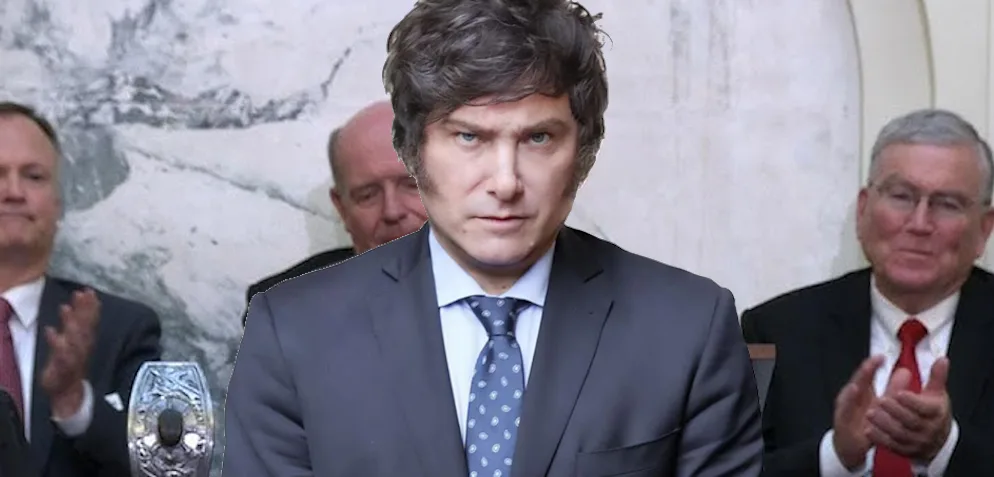




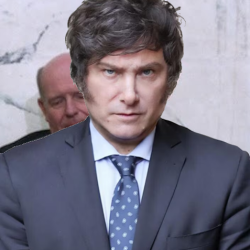
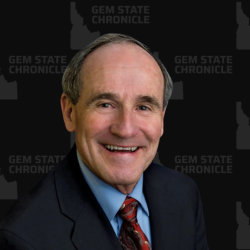
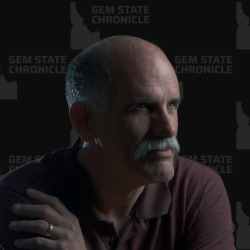
One Comment
Comments are closed.